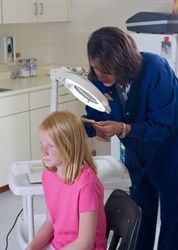
Head lice are small, wingless parasites that feed on tiny amounts of blood, causing itching, skin irritation and sometimes infection. They are human parasites and require human hosts and blood for survival. Until recently, it was thought that lice were merely a nuisance but studies have shown that head and body lice have been linked to the transmission of diseases such as typhus or blood-based agents that carry disease.
Head lice infestation is most frequent in children and teenagers and research shows that almost half of South African children are expected to contract lice at some stage in their lives. They are spread through direct head-to-head contact.
The following is a basic protocol, should your child contract head lice:
Although there are no comprehensive statistics available, a study by PubMed Central, a US based medical archive, shows infestations in Asia at up to 59% of children surveyed with the rate in Europe around 22.4% and Africa at 58%.
Giulia Criscuolo, responsible pharmacist for health and wellness company OTC Pharma SA that distributes Picksan in South Africa, says the shampoo has undergone extensive dermatological testing to prove its efficacy. "It is non-toxic, non-flammable, has a pleasant odour and doesn't cause skin irritation like many other anti-lice shampoos. It has proven to be highly effective if used correctly to treat lice."
The company also manufactures NoLice!, a preventative spray. Both products have been formulated by Prof. Heinz Mehlhorn, who heads up the department of Cytology and Parasitology at Düsseldorf University. They contains natural acting ingredients including the MelAza extract, derived from a special patented neem seed extract from the neem tree which has been used in India to treat lice for thousands of years.
The products are available at health shops, pharmacies, Dis-Chem, Pick n Pay and Medi-Rite. For more information, go to www.picksan.co.za.